#Retail Competition
Explore tagged Tumblr posts
Text
Changing Landscape of European Retail
Written By: Jagriti Shahi
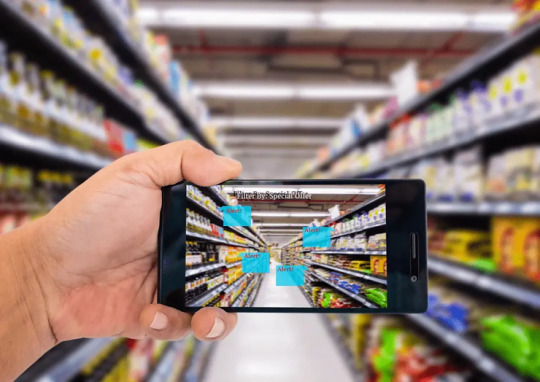
Figure: Growth of retail in Europe
The retail industry in Europe has undergone significant transformations in recent years, driven by changing consumer preferences, technological advancements, and global economic shifts. From traditional brick-and-mortar stores to e-commerce giants, European retail has seen a remarkable evolution. In this article, we will explore the key trends shaping the changing landscape of European retail and how businesses are adapting to stay competitive in this dynamic environment. The retail sector in Europe is the largest in the world, with a turnover of over €2 trillion in 2021. The sector employs over 20 million people and accounts for about 10% of the EU's GDP. The retail sector in Europe is highly fragmented, with a large number of small and medium-sized enterprises (SMEs). However, there are also a number of large multinational retailers operating in the market, such as Carrefour, Tesco, and IKEA.
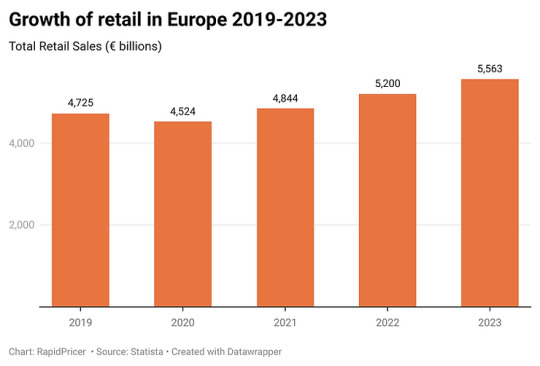
Figure: Growth of retail in Europe
The retail sector in Europe is facing a number of challenges, including the rise of e-commerce, the changing demographics of consumers, and the increasing adoption of new technologies. The rise of e-commerce is one of the most significant challenges facing the retail sector in Europe. In 2021, online retail sales in Europe reached €768 billion, accounting for 16.1% of total retail sales. This growth is being driven by a number of factors, including the increasing availability of high-speed internet, the growing popularity of mobile shopping, and the convenience of online shopping.
Traditional brick-and-mortar retailers are struggling to compete with the convenience and lower prices of online retailers. In order to survive, traditional retailers are investing in their online presence and offering omnichannel experiences that allow customers to shop online and in-store. The demographics of European consumers are also changing, which is having an impact on the retail landscape. The population is aging, with more people over the age of 65. This group is increasingly active and affluent, and they are looking for different products and services than younger consumers. They are also more likely to shop online.
Another demographic trend is the increasing diversity of the European population. This is leading to a demand for more ethnic food and clothing stores. Retailers are also adapting their marketing and advertising to reach these new customer groups.
New technologies are also having a major impact on the retail landscape. The use of artificial intelligence (AI), augmented reality (AR), and virtual reality (VR) is growing, and these technologies are being used to improve the customer experience in a number of ways. For example, AI can be used to personalize recommendations, AR can be used to try on clothes virtually, and VR can be used to create immersive shopping experiences. The adoption of new technologies is also creating new opportunities for retailers. For example, retailers can use data analytics to track customer behavior and improve their marketing and product offerings. They can also use social media to connect with customers and build relationships.
The future of European retail is uncertain, but it is clear that the industry is undergoing a major transformation. The rise of e-commerce, the changing demographics of consumers, and the increasing adoption of new technologies are all having a major impact on the way people shop. Retailers that are able to adapt to these changes will be the ones that are successful in the future.
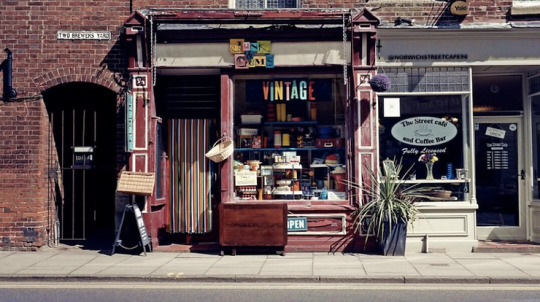
Figure: Brick-and-Mortar stores
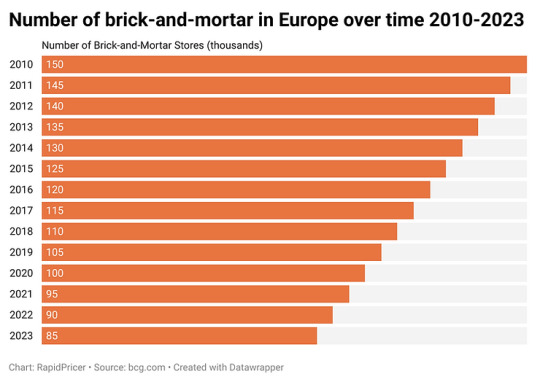
Figure: Number of brick-and-mortar in Europe over time
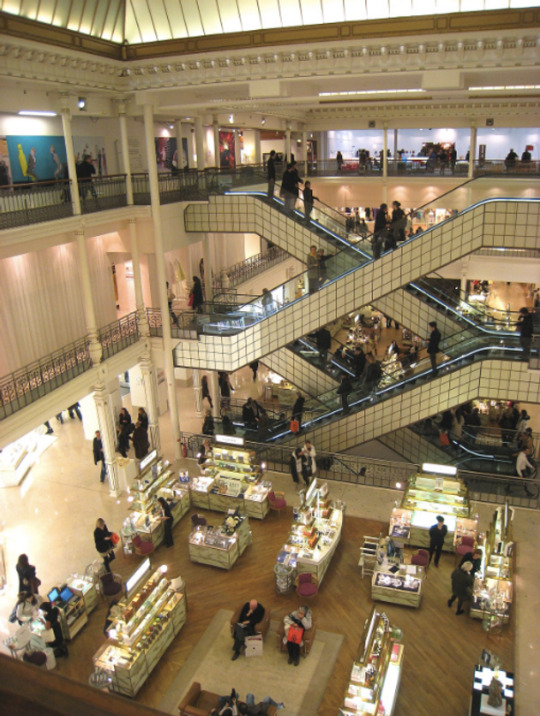
Figure: Department stores
Department stores: Department stores are large stores that sell a variety of products, such as clothing, home goods, and electronics. Some of the most famous department stores in Europe include Galeries Lafayette in Paris, Selfridges in London, and El Corte Inglés in Madrid.
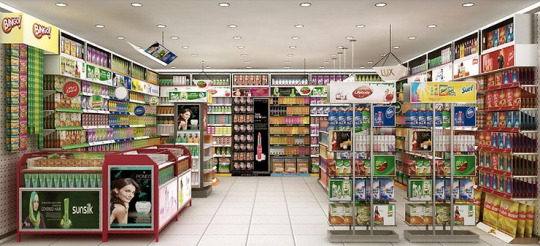
Figure: Independent retailers
Independent retailers: Independent retailers are small, privately owned businesses that sell a variety of products. These retailers often have a strong local presence and offer a unique shopping experience.
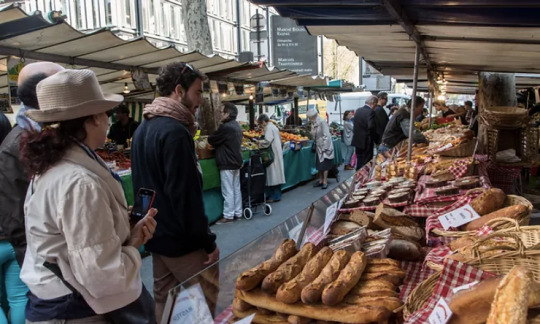
Figure: Markets
Markets: Markets are a great place to find fresh produce, meats, cheeses, and other local products. Many European cities have traditional markets that have been operating for centuries.
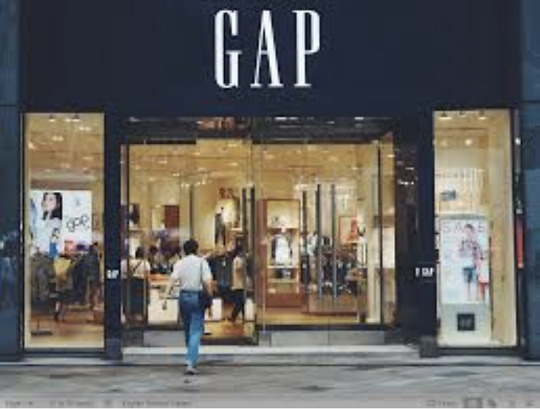
Figure: Outlet
Outlet malls: Outlet malls are a great place to find discounted name-brand clothing, shoes, and accessories. These malls are often located in tourist destinations.
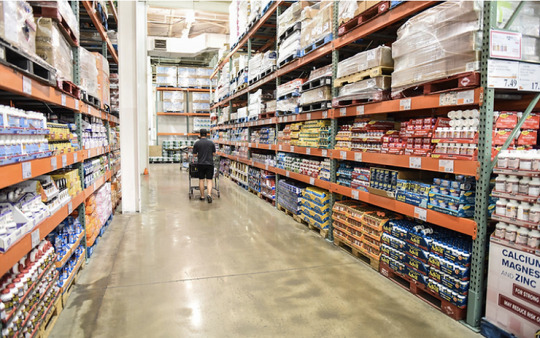
Figure: Warehouse clubs
Warehouse clubs: Warehouse clubs are membership-only stores that sell a variety of products in bulk. These clubs are a great place to find discounts on groceries, household goods, and other items.
Traditional retail is still a major part of the retail landscape in Europe, and it is likely to remain so for the foreseeable future. These stores offer a unique shopping experience that cannot be replicated online. In addition, many traditional retailers are adapting to the changing retail landscape by investing in their online presence and offering omnichannel shopping experiences.
The European Retail Landscape
Europe boasts a diverse and rich retail heritage, with traditional shops, boutiques, and markets dating back centuries. These establishments have played a significant role in local economies, offering consumers a wide range of goods and personalized shopping experiences.
Challenges in the Digital Age: Traditional retail in Europe has felt the impact of the digital age. The rapid growth of e-commerce giants like Amazon, along with the convenience of online shopping, has led to a decline in foot traffic at brick-and-mortar stores. Consumers now have access to a vast array of products with the click of a button, making it essential for traditional retailers to adapt.
The Omnichannel Approach: Many traditional European retailers are responding to the digital challenge by adopting an omnichannel approach. This strategy combines physical stores with an online presence, offering consumers a seamless shopping experience. Retailers are investing in e-commerce websites, mobile apps, and in-store technology to bridge the gap between offline and online shopping.
Customer Experience and Personalization: One advantage traditional retailers have over e-commerce is the ability to provide a unique and personalized customer experience. Many European consumers still value the tactile, sensory experience of shopping in a physical store. Traditional retailers are focusing on creating welcoming and interactive environments, offering personalized service, and curating their product selections to cater to local tastes.
Sustainability and Localism: In response to consumer demand for sustainability and ethical shopping, traditional European retailers are emphasizing their commitment to local sourcing and environmentally friendly practices. Some are rediscovering the benefits of locally-produced goods, promoting them as eco-friendly alternatives to mass-produced items. This aligns with the rising trend of supporting local businesses and reducing the carbon footprint associated with global supply chains.
Cultural and Historical Significance: Traditional retail establishments often hold cultural and historical significance in European communities. Many have been in operation for generations, serving as cornerstones of local culture. These stores are cherished by residents and tourists alike, and efforts are made to preserve their historical authenticity while integrating modern retail practices.
Government Support: Some European governments recognize the importance of preserving traditional retail and are offering support through grants, subsidies, and regulatory measures. These initiatives aim to bolster traditional retail against the encroachment of e-commerce and maintain the vibrancy of city centers.
Conclusion
Traditional retail in Europe is at a crossroads. While it faces challenges from the digital age and changing consumer preferences, it also has unique advantages rooted in history, culture, and personalized shopping experiences. To thrive in today's retail landscape, traditional retailers must embrace technology, adopt an omnichannel approach, focus on customer experience, and align with sustainability and localism trends. In doing so, traditional European retail can not only survive but also continue to offer consumers a distinctive and cherished shopping experience that reflects the rich tapestry of Europe's retail heritage. By adapting to the evolving market while preserving their unique qualities, traditional retailers can continue to play a vital role in the continent's commercial landscape.
The changing demographics of consumers
The demographics of European consumers are also changing, which is having an impact on the retail landscape. The population is aging, with more people over the age of 65. This group is increasingly active and affluent, and they are looking for different products and services than younger consumers. They are also more likely to shop online.
Another demographic trend is the increasing diversity of the European population. This is leading to a demand for more ethnic food and clothing stores. Retailers are also adapting their marketing and advertising to reach these new customer groups.
Here are some specific examples of how the changing demographics of consumers are impacting the retail industry in Europe:
The aging population is leading to a demand for more accessible and convenient shopping options. This is driving the growth of online grocery delivery and click-and-collect services.
The increasing diversity of the population is leading to a demand for more ethnic food and clothing stores. This is also leading to a demand for products and services that cater to the needs of diverse cultures, such as halal food and bilingual customer service.
The rise of the digital native is leading to a demand for more personalized and engaging shopping experiences. This is driving the growth of mobile commerce and augmented reality (AR) shopping.
The changing role of women is leading to a demand for more flexible shopping hours and options for online shopping. This is also leading to a demand for more products and services that are designed for women, such as maternity clothing and baby products.
The growing importance of sustainability is leading to a demand for more sustainable products and services. This is driving the growth of organic food, fair trade clothing, and recycled packaging.
The increasing adoption of new technologies
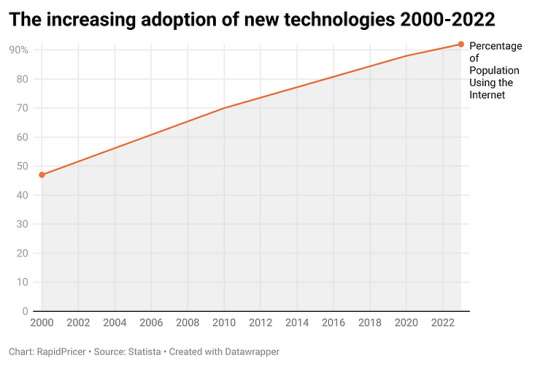
Figure: The increasing adoption of new technologies
As you can see, the percentage of people in Europe using the internet has been increasing steadily over the past two decades. This is due to a number of factors, including the increasing availability of high-speed internet, the falling cost of computers and smartphones, and the growing popularity of online services.
The increasing adoption of new technologies is having a major impact on the retail industry in Europe. Here are some of the key technologies that are being adopted by retailers in Europe:
Artificial intelligence (AI): AI is being used to improve a variety of tasks in the retail industry, such as customer service, inventory management, and fraud detection. For example, AI can be used to analyze customer data to personalize recommendations, or to predict which products are likely to be in high demand.
Augmented reality (AR): AR is being used to create immersive shopping experiences that allow customers to try on clothes virtually or see how furniture would look in their home. For example, IKEA has an AR app that allows customers to see how its furniture would look in their living room.
Virtual reality (VR): VR is being used to create even more immersive shopping experiences that allow customers to virtually visit stores and try on products. For example, Amazon has a VR store that allows customers to browse its products and make purchases.
Internet of Things (IoT): IoT is being used to connect devices and collect data about customer behavior. This data can be used to improve a variety of tasks, such as inventory management and customer service. For example, retailers can use IoT sensors to track the movement of products in stores and to identify when products are running low.
Blockchain: Blockchain is being used to create secure and transparent supply chains. This can help retailers to ensure the authenticity of their products and to track their products from the source to the customer. For example, Walmart is using blockchain to track the supply chain of its food products.
These are just some of the key technologies that are being adopted by retailers in Europe. The adoption of these technologies is helping retailers to improve their efficiency, personalize the customer experience, and create a more sustainable supply chain.
E-Commerce Dominance
One of the most profound shifts in European retail has been the rise of e-commerce. Consumers now have the convenience of shopping online from the comfort of their homes, and this trend has been accelerated by the COVID-19 pandemic. Major players like Amazon, Alibaba, and local champions such as Zalando and ASOS have expanded their reach across Europe, reshaping consumer behavior and expectations. Retailers have had to invest heavily in their online presence, enhancing websites, mobile apps, and supply chain logistics to meet the demand for digital shopping. Additionally, omnichannel strategies have become essential, allowing consumers to seamlessly switch between online and offline shopping experiences.
E-commerce dominance refers to the growing market share of online retailers over traditional brick-and-mortar stores. This trend is being driven by a number of factors, including the increasing availability of high-speed internet, the growing popularity of mobile shopping, and the convenience of online shopping. In Europe, e-commerce sales are expected to reach €768 billion in 2022, accounting for 16.1% of total retail sales. This growth is being driven by the increasing adoption of online shopping by consumers across all demographics.
There are a number of reasons why e-commerce is becoming so dominant. First, the availability of high-speed internet has made it possible for consumers to shop online quickly and easily. Second, the popularity of mobile shopping has made it possible for consumers to shop online from anywhere. Third, the convenience of online shopping is unmatched by traditional brick-and-mortar stores. Consumers can shop online 24/7, compare prices from different retailers, and have products delivered to their door. The rise of e-commerce is having a major impact on the retail industry. Traditional brick-and-mortar stores are facing increasing competition from online retailers, and many are struggling to compete. In order to survive, traditional retailers need to adapt to the changing retail landscape by investing in their online presence and offering omnichannel shopping experiences.

Figure: Share of online retail sales in Europe over time
As you can see, the share of online retail sales in Europe has been increasing steadily in recent years. This is due to the increasing popularity of online shopping, which is more convenient and offers a wider selection of products. The share of online retail sales is expected to continue to increase in the coming years. However, it is important to note that not all countries are affected equally. For example, the share of online retail sales is higher in Northern Europe than in Southern Europe. The future of online retail in Europe is bright. The growth of online shopping is being driven by a number of factors, including the increasing availability of high-speed internet, the growing popularity of smartphones and tablets, and the increasing convenience of online shopping.
Sustainability and Ethical Consumption
The European retail landscape is witnessing a significant shift towards sustainability and ethical consumption. Consumers are becoming increasingly aware of the environmental and social impact of their purchases. Retailers are responding by adopting eco-friendly practices, sourcing sustainable products, and promoting transparency in their supply chains.
Fashion brands, in particular, have made strides in sustainable fashion, with initiatives like "slow fashion" and clothing rental services gaining popularity. European consumers are favoring products that are produced responsibly and have a lower environmental footprint, and retailers are aligning their strategies with these values.
Personalization and Data Analytics
Data analytics and artificial intelligence are playing a crucial role in the transformation of European retail. Retailers are harnessing the power of big data to gain insights into consumer behavior, preferences, and shopping habits. This data-driven approach allows them to personalize marketing efforts, optimize inventory management, and enhance the overall shopping experience.
Personalized recommendations, targeted advertising, and tailored promotions are becoming the norm in the industry. Retailers are using predictive analytics to forecast trends and adjust their product offerings accordingly, ensuring they stay ahead of consumer demands.
Pop-Up Stores and Experiential Retail
While online shopping continues to grow, physical stores are not becoming obsolete. Instead, retailers are reimagining the in-store experience to attract and engage customers. Pop-up stores and experiential retail spaces are gaining popularity, offering unique and immersive experiences that cannot be replicated online.
These temporary stores allow retailers to test new products and connect with customers on a more personal level. They often incorporate interactive elements, such as virtual reality experiences or live demonstrations, to create memorable moments for shoppers.
Cross-Border Expansion
European retailers are increasingly looking beyond their home markets for growth opportunities. Cross-border expansion has become a viable strategy for many companies seeking to tap into new customer bases and diversify revenue streams. The European Union's single market has facilitated this expansion by reducing trade barriers and harmonizing regulations.
Furthermore, technology has made it easier for retailers to reach international customers through e-commerce platforms and digital marketing. As a result, many European brands are expanding their presence into neighboring countries and even outside of Europe, creating a more competitive and globalized retail landscape.
Post COVID European Retail
The retail industry in Europe is undergoing a period of change after COVID. The pandemic has accelerated the shift to online shopping, and brick-and-mortar stores are struggling to compete. Retailers are responding by adopting new technologies, such as AR and VR, and by offering more convenient shopping experiences, such as BOPIS. The industry is also focusing on sustainability, as consumers are increasingly demanding sustainable products and services.
Conclusion
The changing landscape of European retail is characterized by the rapid growth of e-commerce, a focus on sustainability and ethical consumption, data-driven personalization, experiential in-store experiences, and cross-border expansion. Retailers that adapt to these trends and embrace digital transformation are likely to thrive in this dynamic environment.
The future of European retail will continue to be shaped by evolving consumer preferences and technological innovations. To stay relevant, retailers must remain agile, customer-centric, and committed to ethical and sustainable practices. As the industry continues to evolve, it will be exciting to see how retailers innovate and compete in this ever-changing landscape.
About RapidPricer
RapidPricer helps automate pricing, promotions and assortment for retailers. The company has capabilities in retail pricing, artificial intelligence and deep learning to compute merchandising actions for real-time execution in a retail environment.
Contact info:
Website: https://www.rapidpricer.com/
LinkedIn: https://www.linkedin.com/company/rapidpricer/
Email: [email protected]
#European Retail Industry#Retail Trends in Europe#E-commerce Growth#Brick-and-Mortar Stores#Omnichannel Retailing#Digital Transformation#Consumer Behavior#Sustainability in Retail#Retail Technology#Online Marketplaces#Supply Chain Disruptions#Post-Pandemic Retail#Retail Innovation#Mobile Shopping#Data Analytics in Retail#Cross-Border Shopping#Pop-Up Stores#Customer Experience#Retail Competition#Retailer Partnerships#Retail Regulations#Future of Retail in Europe#Retail Challenges#Local vs. Global Retailers#Retail Adaptation Strategies
0 notes
Text
"you dress for the office to show respect to your job" well first of all i respect no job because i hate all labor under late stage capitalism so jot that one down
#emma shut up#god i hate office culture. at least in retail my dress code is just 'no competition brand logos and dont flash anyone'
17 notes
·
View notes
Text
In the world of Retail: Why people-centered Leadership is your competitive edge
Photo by Ksenia Chernaya on Pexels.com In today’s retail world, the only constant is change, and the pace is accelerating. While retailers race to implement new technology, protect themselves against current technology, optimise supply chains and meet ever-shifting consumer demands, there is a critical asset that often gets overlooked in all the chaos. The people who make it all happen, the ones…

View On WordPress
#Business#coaching#competitive edge#consumer behavior#customer service#happy customers#happy team#Leadership#Life#personal-development#psychological safety#Retail#retail culture
3 notes
·
View notes
Text
Discover Kroger Co. stock forecast for 2025–2029, with insights on operations, financials, dividends, and competitive landscape. #Krogerstock #Kroger #KR #KRstockforecast #Groceryretailinvestment #Dividendstocks #Stockpriceanalysis #Krogerfinancialperformance #Sharebuybackprogram #Ecommerceretail #Stockvaluation #Technicalanalysis
#Dividend Stocks#E-commerce retail#Grocery retail investment#Grocery retail sector competitive analysis#Impact of Albertsons merger on Kroger stock#Investment#Investment Insights#Is Kroger stock a good investment#KR stock forecast#Kroger dividend yield and buyback policy#Kroger e-commerce growth outlook#Kroger financial performance#Kroger financial ratios and performance#Kroger stock#Kroger stock price forecast 2025–2029#Kroger stock technical analysis 2025#Kroger vs Walmart stock comparison#Share buyback program#Stock Forecast#Stock Insights#Stock price analysis#Stock valuation#Technical analysis#When to buy Kroger stock 2025
3 notes
·
View notes
Text
Exploring Career and Job Opportunities in Davao City Philippines
Davao City, recognized as one of the Philippines' most progressive cities, continues to experience remarkable economic growth, creating a vibrant job market that attracts professionals from across the country. The city's diverse economy offers numerous employment opportunities, from entry-level positions to executive roles, making it an attractive destination for job seekers at all career stages.
The Business Process Outsourcing (BPO) sector stands as one of the largest employers in Davao City, providing thousands of jobs across various specializations. Companies in this sector actively recruit customer service representatives, technical support specialists, and quality assurance analysts, offering competitive salaries and comprehensive benefits packages. The industry's continued expansion has created numerous opportunities for career advancement, with many organizations promoting from within and providing extensive training programs.
Part-time employment opportunities have also flourished in Davao City, catering to students, professionals seeking additional income, and individuals preferring flexible work arrangements. The retail sector, food service industry, and education field offer numerous part-time positions with varying schedules and responsibilities. These roles often provide valuable work experience and can serve as stepping stones to full-time careers.
The Information Technology sector in Davao has seen significant growth, with many companies seeking software developers, web designers, and IT support specialists. This growth has been fueled by the city's improving technological infrastructure and the increasing number of tech-focused businesses establishing operations in the region. Tech professionals can find opportunities in both established companies and startups, with many positions offering competitive compensation and the possibility of remote work arrangements.
Davao's hospitality and tourism industry continues to expand, creating jobs in hotels, restaurants, travel agencies, and tour operations. The sector offers positions ranging from entry-level service roles to management positions, with many employers providing training and development opportunities. The industry's growth has also sparked demand for professionals in events management and tourism marketing.
The education sector presents numerous opportunities for both full-time and part-time employment. Educational institutions regularly seek teachers, tutors, and administrative staff. The rise of online learning has created additional opportunities for English language teachers and academic consultants who can work flexible hours from home or teaching centers.
Job hiring in Davao, the digital economy has opened new avenues for employment. E-commerce specialists, digital content creators, and social media managers are in high demand as businesses increasingly establish their online presence. These positions often offer the flexibility of remote work while providing competitive compensation packages.
Professional development resources are readily available in Davao City, with numerous institutions offering skills training programs and industry certifications. Job seekers can access career counseling services, resume writing assistance, and interview coaching through various employment support organizations. These resources prove invaluable in helping candidates prepare for and secure desired positions.
The financial services sector in Davao has also experienced substantial growth, creating opportunities for banking professionals, insurance specialists, and investment consultants. These positions typically offer attractive compensation packages, including performance bonuses and health benefits, making them highly sought after by experienced professionals.
Davao's agricultural sector continues to evolve, combining traditional farming with modern agribusiness practices. This has created opportunities for agricultural technologists, food processing specialists, and supply chain professionals. The sector offers both technical and management positions, with many companies providing specialized training and development programs.
For those entering Davao's job market, proper preparation is essential. Successful job seekers typically maintain updated resumes, prepare comprehensive portfolios, and stay informed about industry developments. Professional networking, both online and offline, plays a crucial role in discovering opportunities and advancing careers in the city.
The future of Davao's job market looks promising, with emerging industries creating new employment opportunities. The city's commitment to economic development, coupled with its strategic location and robust infrastructure, continues to attract businesses and investors, ensuring a steady stream of job opportunities for qualified candidates.
Whether seeking full-time employment or part-time job in Davao City offers a diverse range of opportunities across multiple industries. Success in this dynamic job market often comes to those who combine proper preparation with continuous skill development and effective networking. As the city continues to grow and evolve, its job market remains a beacon of opportunity for professionals seeking to build meaningful careers in Mindanao's premier business hub.
#Davao City#recognized as one of the Philippines' most progressive cities#continues to experience remarkable economic growth#creating a vibrant job market that attracts professionals from across the country. The city's diverse economy offers numerous employment op#from entry-level positions to executive roles#making it an attractive destination for job seekers at all career stages.#The Business Process Outsourcing (BPO) sector stands as one of the largest employers in Davao City#providing thousands of jobs across various specializations. Companies in this sector actively recruit customer service representatives#technical support specialists#and quality assurance analysts#offering competitive salaries and comprehensive benefits packages. The industry's continued expansion has created numerous opportunities fo#with many organizations promoting from within and providing extensive training programs.#Part-time employment opportunities have also flourished in Davao City#catering to students#professionals seeking additional income#and individuals preferring flexible work arrangements. The retail sector#food service industry#and education field offer numerous part-time positions with varying schedules and responsibilities. These roles often provide valuable work#The Information Technology sector in Davao has seen significant growth#with many companies seeking software developers#web designers#and IT support specialists. This growth has been fueled by the city's improving technological infrastructure and the increasing number of t#with many positions offering competitive compensation and the possibility of remote work arrangements.#Davao's hospitality and tourism industry continues to expand#creating jobs in hotels#restaurants#travel agencies#and tour operations. The sector offers positions ranging from entry-level service roles to management positions#with many employers providing training and development opportunities. The industry's growth has also sparked demand for professionals in ev#The education sector presents numerous opportunities for both full-time and part-time employment. Educational institutions regularly seek t
4 notes
·
View notes
Text
The way labor has no value to people is so sickening
#charlie talks#i work full time at a store i also sell my work at#and its just barely more expensive than my made in a factory competition#and people regularly leave complaints that we even sell that stuff at all#HOE YOURE STILL BUYING IT#my shit is literally right next to it#we have factory made bracelets that probbaly cost cents to make but retail for $27 and change plus tax#i sell my handmade chainmaille bracelets i make literally one ring at a time with my hands RIGHT NEXT TO THOSE#and NO ONE will buy them#they sell for $30 plus tax#so why do you want to dictate what we sell when you dont even practice what you preach its so aggravating#i can do so much i can knit i can sew i can work with wire and metal i can paint and draw with ink and pencils and whatever medium#and not any of that is worth doing under capitalism because of the time it takes to do and the time it takes to develop those skills#i also have to be my own marketing and PR team which ive never been good at because im a bad liar#i dont like upselling people because at least for my poor ass it has the opposite effect#so i guess im just fucked
3 notes
·
View notes
Text
it’s so cruel to make a library employee go back to retail. this is not an enriching environment for me. i’m stressed out. I’m developing mange. i need to be in the fucking stacks
#I NEED TO SHELVE. I NEED TO SHELVE#-_-#my new job is fine im just stressed and sad. working retail causes me so much anxiety#and truly…im just slow. the pace of a library is ideal for me#idc that the candy shop smells like chocolate i want to sniff Book Dust#Im applying to every library anf bookstore job i can but they are so competitive��i feel like no one will hire a student ;_;
2 notes
·
View notes
Text
I need a new plan... for the past two years it was get liscence-fix car-apply to more out of county jobs- become librarian or desk worker
...maybe I should just get my real estate license
#personal? idk#i hate sales jobs though retail is bad enough the nonsense of competitive sales is hell#i wish more real eastate offices were just looking for some loswr to organize their files
2 notes
·
View notes
Text
idk about other countries but in canada all cigarettes come in the same brown packaging with the usual warnings and scare images on them; also the cigarettes themselves have warnings printed on them, and they can't be on display so retailers have them behind roller shutters.
#anyway they cost cents for the companies to make#most people assume it's just the taxes that make them as expensive as they are#but the companies also raise the retail prices on them when the taxes go up#and essentially all the regulations in canada mean there will never be new competition for the established companies#because how can you break into a market with no advertising or distinguishing flair?#anyway that's my very basic info dump about cigarettes in canada
1 note
·
View note
Text
But greed must be at the heart of it, no?
And I would think the biggest source of it would be rents
Things like apartments come with certain built-in and recurring costs such as property tax (because government needs to be funded), repairs/maintenance (probably the 2nd Law of Thermodynamics's fault), utilities (most of which I'm responsible for paying anyway but a monthly average should be knowable), and a superintendent (whose pay, aside from getting a free apartment to live in, can come in the form of subscriptions from each of the apartments in the complex)
I may be leaving stuff out like the costs of a property manager since my landlord owns many complexes, its corporation subcontracts with property managers to oversee groups of them (but that's many more apartments so monthly subscription fees should be lower than that of a single on-site superintendent...should be) but rent shouldn't be much more than those costs
But for some reason rent is almost always WAY MORE than those costs and it always rises, often (way) out of synch with inflation
To use my apartment as an example. Since 2011, inflation has been about 37½%. The inflation on my leases (same apartment with zero capital improvements, same paintjob, same carpet, same fixtures, etc.) has been exactly 50%. The "market rate" of apartment rents, however, has been over 90% in the same period in my area.
The inflation on all my other bills has either tracked with inflation or has even managed to be less than the official rate (my cellphone provider and ISP for examples). My wages have even managed to clock in at just-above the rate of inflation (about 40%) over that time period
Only one thing has been askew and that has been rent so I'm prone to blaming my life's unaffordability on the human tapeworms who feel entitled to an ever greater lifestyle simply because they own land
Whether via strict rent controls on existing structures or converting all rentals into regularly audited non-profits or local/state/federal government underwriting the costs of building new apartments and starter homes until local housing demand is sated, I would think inflation overall could be very well tamed.

A LOT of "inflation" is actually corporations taking advantage of "inflation" to hide profiteering.
#despite the high cost of living it remains a popular item#like it still pisses me off that my monthly rent is twice all my other monthly expenses COMBINED#I'm not saying retail businesses can't and aren't greedy too but their greed actually has limits via competition or reality#Whereas landlords appear to be in collusion with each other because when have you ever seen renter favored competition in pricing?#The price I overpaid for this apartment in 2011 is probably exactly what it should be renting for now on a non-profit model
46K notes
·
View notes
Text
Saudi Arabia Apparel Market Analysis, Share Analysis and Forecast 2034

Anything worn to cover, shield, or decorate the human body is considered apparel. It consists of coats, shirts, dresses, pants, and accessories like gloves and hats. Influenced by elements including culture, environment, fashion trends, and individual taste, apparel has both practical and decorative uses. Gender, age group, season, or occasion (e.g., casual, formal, sportswear) can all be used to describe it. Design, production, distribution, and retail are all included in the worldwide clothing business. Sustainability and ethical manufacture have been more significant considerations when choosing clothing in recent years.
According to SPER Market Research, ‘Saudi Arabia Apparel Market Size - By Category - Regional Outlook, Competitive Strategies and Segment Forecast to 2033’ state that the Saudi Arabia Apparel Market is estimated to reach USD 24.26 billion by 2033 with a CAGR 3.47%.
Drivers:
Rising disposable incomes, a youthful and fashion-conscious populace, increased urbanization, and the growing impact of Western fashion trends are the main factors propelling the Saudi Arabian apparel sector. Digital marketing and the growth of e-commerce platforms have improved accessibility and brand awareness. Additionally, the demand for diversified clothing has increased as a result of Vision 2030 measures that support female labour participation and tourism. Sales peaks are also influenced by seasonal occasions like Ramadan and the Hajj.
Request a Free Sample Report: https://www.sperresearch.com/report-store/saudi-arabia-apparel-market.aspx?sample=1
Restraints:
Strict cultural and religious dress regulations that restrict fashion diversity, particularly for women, are one of the Saudi Arabian garment market's constraints. A high reliance on imports causes prices to fluctuate because of exchange rates and levies. International brands are also posing a growing threat to local businesses in this industry. Additionally, traditional retail forms are under pressure from the swift digital transition. Market expansion is further constrained by older populations' low fashion awareness and the sluggish uptake of e-commerce in rural areas. Additionally, the economic diversification of Vision 2030 can draw focus away from clothing expenses. All of these elements work together to limit the Saudi clothing market's potential for growth.
The Saudi Arabia Apparel Market is dominated by Riyadh due to its high population density, greater purchasing power, modern retail infrastructure, and concentration of fashion-conscious consumers. Some of its key players are – Adidas, AlShiaka, H&M, Levi's, Max.
For More Information, refer to below link: –
Saudi Arabia Apparel Market Growth
Related Reports:
Global Dishwasher Market Growth
Global Ponzu Sauce Market Growth
Follow Us –
LinkedIn | Instagram | Facebook | Twitter
Contact Us:
Sara Lopes, Business Consultant — USA
SPER Market Research
+1–347–460–2899
#Saudi Arabia Apparel Market#Apparel Retail in Saudi Arabia#Apparel Manufacturer in Saudi Arabia#Textile Industry in Saudi Arabia#Apparel eCommerce Market in Saudi Arabia#Apparel eCommerce Market#Apparel and Footwear in Saudi Arabia#Textiles and Apparel Market in Saudi Arabia#Saudi Arabia Apparel Market Growth#Saudi Arabia Apparel Market Revenue#Saudi Arabia Apparel Market Size#Saudi Arabia Apparel Market Share#Saudi Arabia Apparel Market competition#Saudi Arabia Apparel Market Demand
0 notes
Text
Exploring the Benefits of EPROLO as Your Wholesale Clothing Vendor
In the ever-evolving world of e-commerce, dropshipping has emerged as a fantastic opportunity for entrepreneurs. One standout player in this industry is EPROLO, a reliable wholesale clothing vendor that simplifies the process for online retailers.
EPROLO offers a vast selection of trendy apparel, making it easy for sellers to find products that resonate with their target market. Their user-friendly platform allows for seamless integration with various e-commerce sites, enabling sellers to focus on marketing and customer engagement rather than inventory management.
Moreover, EPROLO’s commitment to quality ensures that customers receive stylish and well-made clothing, fostering positive reviews and repeat business. With competitive pricing and efficient shipping options, partnering with EPROLO can elevate your dropshipping business to new heights.
Overall, choosing EPROLO as your wholesale clothing vendor can lead to a successful and fulfilling entrepreneurial journey!
inventory management
0 notes
Text

“Your competitor dropped their price at 3:12 AM. You found out at 9:45. Too late, they already took the sale.”
In today’s eCommerce game, it's not just about having a great product. It’s about knowing what your competitors are doing and reacting fast. That’s where real-time price scraping comes in.
From smart SKU matching to legal compliance, this guide breaks it all down. You don’t have to slash prices to win, just be smarter with the data.
📘 Full guide: https://shorturl.at/sZxZs
#ecommerce #pricingstrategy #digitalretail #dataintelligence #competitiveanalysis #retailtips #42Signals
#ecommerce#pricing#pricingstrategy#digital#digitalretail#data#dataintelligence#retail#retailtips#competitive#competitiveanalysis
0 notes
Text
Exploring Non-Construction Industries That Benefit from an Estimating Service
Introduction Estimating services are often associated with the construction industry, but their value extends well beyond that. Various non-construction industries can also leverage estimating services to streamline operations, improve financial forecasting, and enhance decision-making processes. Whether it’s manufacturing, healthcare, or technology, estimating services can bring significant benefits across different sectors.
Manufacturing and Production In manufacturing, accurate cost estimates are crucial for ensuring that products are made efficiently and profitably. Estimating services help manufacturers predict the costs of raw materials, labor, machinery, and overhead. This level of precision helps businesses remain competitive by optimizing production costs, ensuring that they do not exceed budget constraints. By forecasting the costs associated with each step of the production process, manufacturers can identify areas where improvements or cost-saving measures are possible.
Healthcare and Medical Equipment The healthcare industry, particularly in medical equipment manufacturing and hospital construction, relies heavily on estimating services. Accurate cost estimates allow hospitals and medical institutions to plan their budgets effectively, whether for building new facilities or purchasing new equipment. Estimating services help predict the cost of materials, labor, and operational costs for both new construction and renovations. Additionally, in the medical equipment sector, estimating services can aid in forecasting production costs, allowing manufacturers to price their products appropriately while remaining competitive.
Technology and Software Development In technology and software development, estimating services are used to predict the cost of developing a product or service. From initial concept to finished product, accurate cost estimates help companies manage their budgets, allocate resources efficiently, and avoid cost overruns. Estimating services can also aid in predicting the cost of integrating new technologies, purchasing necessary software, and staffing requirements. The ability to accurately forecast costs at each stage of development helps companies stay on track and ensure that they deliver their products on time and within budget.
Retail and E-commerce Retailers and e-commerce businesses benefit from estimating services when it comes to inventory management and supply chain optimization. By predicting the costs associated with manufacturing, shipping, and stocking products, estimating services help businesses ensure that they can fulfill customer demand without overspending. Accurate cost estimates help these businesses negotiate better deals with suppliers and distributors, while also enabling them to plan for seasonal fluctuations in demand.
Energy and Utilities Energy companies, especially those involved in renewable energy projects or infrastructure upgrades, rely on estimating services for cost forecasting. Estimators help predict the costs of materials, labor, permits, and equipment required for energy infrastructure projects. Whether it's a solar power farm or the installation of new pipelines, estimating services provide valuable insights that help project teams stay within budget and avoid unforeseen expenses. These services are particularly important in the energy sector, where projects can span multiple years and involve complex logistical considerations.
Government and Public Sector Projects The government sector is another area where estimating services can be invaluable. Whether it’s for infrastructure projects, public building renovations, or the implementation of new programs, estimating services help public agencies create accurate budgets, allocate resources, and ensure that projects are completed on time and within budget. Accurate cost estimates are essential for ensuring taxpayer money is spent wisely and that public projects deliver on their promises without financial mismanagement.
Education and Institutional Planning In the education sector, estimating services are used to forecast the costs of building new campuses, upgrading existing facilities, or implementing educational programs. Schools and universities rely on estimating services to plan budgets for construction, technology upgrades, and educational resources. Accurate estimates help administrators make informed decisions about allocating funds for new programs, expanding infrastructure, or making campus-wide improvements.
Transportation and Logistics In the transportation and logistics industry, estimating services help companies predict the costs of fleet maintenance, fuel, and shipping operations. By forecasting transportation-related costs, companies can optimize their supply chains, negotiate better rates with suppliers and partners, and ensure that they are pricing their services competitively. Estimating services also assist in the planning of major transportation infrastructure projects, such as highways, railways, and ports, where accurate cost predictions are essential for securing funding and staying within budget.
Food Production and Agriculture Agriculture and food production industries benefit from estimating services by predicting the costs of raw materials, labor, equipment, and transportation. Accurate cost forecasting ensures that businesses can price their products effectively, avoid overproduction, and maintain profitability. Estimating services also help agricultural businesses plan for seasonal fluctuations in production costs, allowing them to adapt to market demands and mitigate financial risks.
Real Estate Development and Property Management While real estate development is often tied to construction, estimating services are equally valuable for property management companies. Estimators help property managers forecast maintenance costs, predict future capital expenditures, and create long-term financial plans for their portfolios. For real estate developers, estimating services offer insights into land acquisition costs, zoning regulations, and building costs, ensuring that they can effectively budget and avoid surprises during the development process.
Conclusion Estimating services are not limited to the construction industry. Non-construction sectors such as manufacturing, healthcare, technology, retail, energy, and others can also benefit from accurate cost forecasting. By incorporating estimating services into their financial and operational planning, businesses across industries can improve efficiency, reduce waste, and make smarter, more cost-effective decisions.
#Estimating Service#manufacturing cost estimates#healthcare cost forecasting#technology cost planning#software development estimates#retail cost forecasting#energy project estimating#public sector cost planning#government budgeting#educational cost estimates#transportation cost forecasting#logistics cost planning#agriculture cost predictions#food production estimates#real estate cost forecasting#renewable energy cost estimating#infrastructure planning#supply chain cost forecasting#project management#budget control#financial forecasting#resource allocation#construction estimates#cost accuracy#business operations#vendor negotiations#project cost control#material cost forecasting#seasonal cost adjustments#competitive pricing
0 notes
Text
🌟 Looking for the Best 10 Latest Business Ideas for 2025? These 10 New 10 Latest Business Ideas can help you make big profits with low investment! 🚀💰 Don't miss out on these trending opportunities! #BusinessIdeas #SmallBusiness #Entrepreneur #Startup #MoneyMaking #NewBusiness #SideHustle #HighDemandBusiness #2025Business #ProfitableBusiness
#best business ideas#business ideas 2025#high profitable business#latest business ideas in india#latest ecommerce business ideas#latest online business ideas#latest retail business ideas#latest small business ideas#latest trends business ideas#low competition business ideas#low competition industries#low investment business ideas#new business ideas 2025#no competition business ideas#profitable business ideas#small business ideas 2025#top 10 new business ideas
0 notes
Text
PepsiCo to reward retailers setting their stores alight with Doritos Dinamita via cash prize draw
Following the hot launch of Doritos Dinamita last month, PepsiCo is giving retailers even more reasons to stock the product with a chance to win a series of cash prizes and merchandise. Partnering with cash rewards app *shopt, PepsiCo is giving 30 stores the chance to win by asking them to simply share an image of their Doritos Dinamita stock and in-store displays. Available exclusively in the convenience channel, the rolled tortilla snack has hit UK shelves designed to appeal to Gen-Z and spice lovers seeking the ultimate spicy flavour experience.
The competition will run now until 16March, and retailers will simply need to sign up to *shopt and send a snap of Doritos Dinamita stocked in their store for the chance to be entered into the draw to win a share of the £3,000 prize fund. Two stores will win £500 each, a further four will enjoy £250 each, and 10 runners up will receive £100 via their *shopt account.

#Competition#Convenience Channel#Dinamita#Doritos#Doritos Dinamita#Ed Merrett#NPD (New Product Development)#PepsiCo#Prize Draw#Doritos Dinamita UK Competition for Independent Retailers
1 note
·
View note